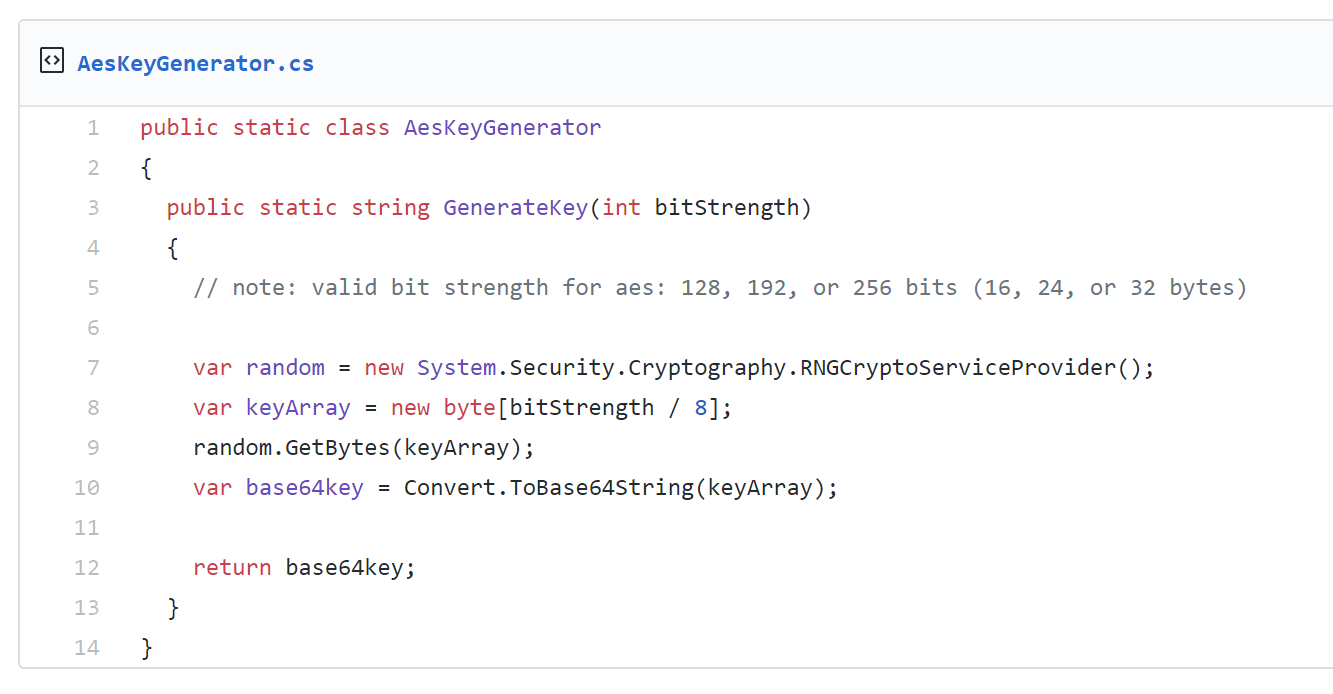Mar 01, 2016 Contribute to roneyvia/AES-Key-Generator-in-Java development by creating an account on GitHub. Again the data is random, basically server generates 128 random bits and sends it to client, the clien then encrypts it and sends it back to server. However client and server communicate via a third party (tethered way) so third party can see both plaintext and ciphertext. AES is a symmetric block cipher where a single key is used for both encryption and decryption process. The input and output for the AES algorithm each consist of sequences of 128 bits. The key used in this algorithm consists of 128, 192, or 256 bits. Jul 06, 2016 Given a message, We would like to encrypt & decrypt plain/cipher text using AES CBC algorithm in java. We will perform following operations: Generate symmetric key using AES-128. Generate initialization vector used for CBC (Cipher Block Chaining). Encrypt message using symmetric key and initialization vector.
This class provides the functionality of a secret (symmetric) key generator.Putty generate ssh key mac. Key generators are constructed using one of the getInstance class methods of this class.
KeyGenerator objects are reusable, i.e., after a key has been generated, the same KeyGenerator object can be re-used to generate further keys.
There are two ways to generate a key: in an algorithm-independent manner, and in an algorithm-specific manner. The only difference between the two is the initialization of the object: /reimage-license-key-generator-2015.html.
Random Key Generator for Passwords, Encryption Keys, WPA Keys, WEP Keys, CodeIgniter Keys, Laravel Keys, and much more Don't got what you're looking for! Send us a mail or contribute on Github. RandomKeygen is a free mobile-friendly tool that offers randomly generated keys and passwords you can use to secure any application, service or device. KEY RandomKeygen - The Secure Password & Keygen Generator.
- Algorithm-Independent Initialization
All key generators share the concepts of a keysize and a source of randomness. There is an
initmethod in this KeyGenerator class that takes these two universally shared types of arguments. There is also one that takes just akeysizeargument, and uses the SecureRandom implementation of the highest-priority installed provider as the source of randomness (or a system-provided source of randomness if none of the installed providers supply a SecureRandom implementation), and one that takes just a source of randomness.Since no other parameters are specified when you call the above algorithm-independent
initmethods, it is up to the provider what to do about the algorithm-specific parameters (if any) to be associated with each of the keys. - Algorithm-Specific Initialization
For situations where a set of algorithm-specific parameters already exists, there are two
initmethods that have anAlgorithmParameterSpecargument. One also has aSecureRandomargument, while the other uses the SecureRandom implementation of the highest-priority installed provider as the source of randomness (or a system-provided source of randomness if none of the installed providers supply a SecureRandom implementation).
In case the client does not explicitly initialize the KeyGenerator (via a call to an init method), each provider must supply (and document) a default initialization.
Generate Random Aes Key
Every implementation of the Java platform is required to support the following standard KeyGenerator algorithms with the keysizes in parentheses:

Generate Aes Key Openssl
- AES (128)
- DES (56)
- DESede (168)
- HmacSHA1
- HmacSHA256
Generate Random Aes 128 Key West
Chilkat • HOME • Android™ • Classic ASP • C • C++ • C# • Mono C# • .NET Core C# • C# UWP/WinRT • DataFlex • Delphi ActiveX • Delphi DLL • Visual FoxPro • Java • Lianja • MFC • Objective-C • Perl • PHP ActiveX • PHP Extension • PowerBuilder • PowerShell • PureBasic • CkPython • Chilkat2-Python • Ruby • SQL Server • Swift 2 • Swift 3/4 • Tcl • Unicode C • Unicode C++ • Visual Basic 6.0 • VB.NET • VB.NET UWP/WinRT • VBScript • Xojo Plugin • Node.js • Excel • Go
Aes 128 Encryption
| Discusses symmetric encryption key generation techniques for block encryption algorithms such as AES, Blowfish, and Twofish, or for other algorithms such as ChaCha20.
| |||||
© 2000-2020 Chilkat Software, Inc. All Rights Reserved.
Aes 128 Key Generator
